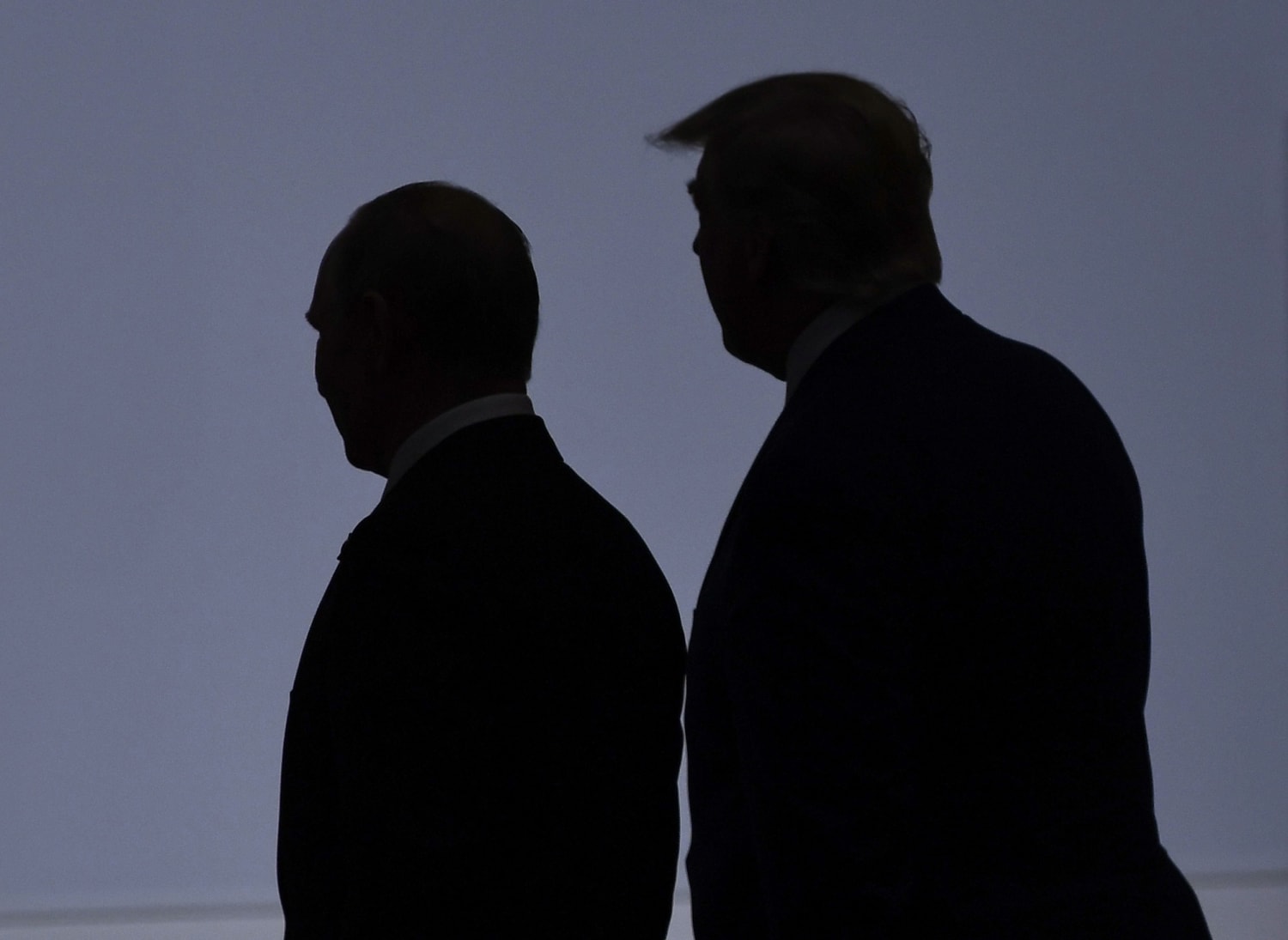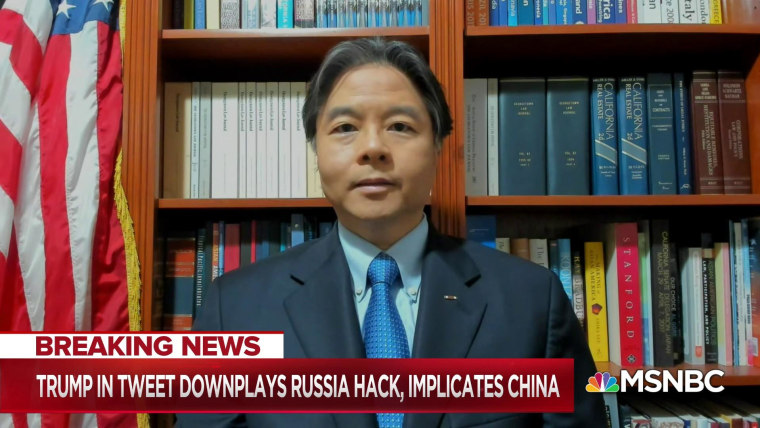WASHINGTON — When a Russian spy who defected was fatally poisoned nearly 15 years ago, blaming Russian President Vladimir Putin from his deathbed, Joe Biden warned that the United States had been giving Putin “a bye” for far too long.
“I’m not a big fan of Putin’s,” Biden, then the incoming chairman of the Senate Foreign Relations Committee, said in 2006. “I think we should have a direct confrontation with Putin politically about the need for him to change his course of action.”
Putin didn’t alter his course.
Since then, Russia’s confrontations with the West have grown only more overt. And now, what is believed to be the Kremlin’s sweeping cyber hack of U.S. government agencies puts Biden on a high-stakes collision course with Putin when he becomes president next month.
But unlike when President Donald Trump entered the White House, after Putin’s interference in the 2016 election, Biden takes office after more than two decades of failed U.S. attempts to forge a cooperative relationship with Moscow.
“Russia is way more powerful today than it was 20 years ago, and it’s way more powerful today than it was four years ago,” said Michael McFaul, who was U.S. ambassador to Russia during President Barack Obama’s first term. “It’s a much more immediate threat that we continue to underestimate.”
Biden has no plans to try to forge a close relationship with Putin, as Trump attempted. And his administration’s Russia policy won’t be complicated, as Trump’s was, by an investigation into whether he or his allies had nefarious links to Moscow.
Instead, Biden is expected to quickly work to draw a contrast with Trump’s handling of Russia, including renewed scrutiny of reports of bounties offered to extremists in Afghanistan to kill U.S. troops. The U.S. commander overseeing the region has said the allegations haven’t been fully corroborated by intelligence, but the utter lack of concern from Trump about even the possibility has incensed Democrats and some Republicans.
“Donald Trump’s entire presidency has been a gift to Putin, but this is beyond the pale,” Biden tweeted in June. Addressing the issue during the first presidential debate, Biden called Trump “Putin’s puppy.”
Biden is also likely to slap new sanctions on Russia for election meddling and human rights violations, although it’s unclear how much further he can turn the screw given that Moscow is already under intense U.S. sanctions that have isolated it from the American financial system.
After Biden won the election, it took Putin more than a month to congratulate him, in a Kremlin statement wishing him “every success.” Just months earlier, when Biden was the Democratic nominee, Putin had chastised him publicly for “quite sharp anti-Russian rhetoric.” Biden has said responding to the recent cyber breach will be a “top priority” when he takes office, although he didn’t call out Russia by name.
Indeed, the Russian government sees Biden as an adversary. The mistrust is mutual, and it has been for decades. Asked in 2001 by Tim Russert, then the moderator of NBC News’ “Meet the Press,” whether he believed Putin was trustworthy, Biden didn’t demur.
“The answer is no, I don’t,” he said.
Over the years, including his decades in the Senate, Biden often promoted the cautious pursuit of better relations with Russia while warning against letting Moscow exploit the veneer of high-level diplomacy with the U.S. to elevate itself as a major power or legitimize the consolidation of power under Putin.
During President George W. Bush’s administration, Biden emerged as one of the more vocal critics of the U.S. approach to Russia, even joining in 2007 with the top Republican on the Senate Foreign Relations Committee, Richard Lugar of Indiana, to warn that the Bush administration was getting caught flat-footed as relations with Moscow deteriorated — and pointing to limiting Iran’s nuclear cooperation as an opportunity for Russia to work more constructively with the West.
Biden’s only known run-in with Putin came in March 2011, when Putin was prime minister, and Biden, then the vice president, visited Moscow for a meeting on redeploying missile defense launchers in Poland and Romania. Biden, unsure before the meeting what to expect, would later write in his autobiography that Putin was “ice-cold calm throughout, but argumentative from start to finish.”
For two hours, they sat together in Putin’s office in the Russian White House, including a 15-minute side chat during which aides left the room while they spoke privately.
When reporters were allowed in briefly for the start of their meeting, which took place between Russian and American flags under a pair of ostentatious crystal chandeliers, Putin pitched Biden on a visa-free system that would let Russians and Americans travel back and forth unimpeded. Biden responded with a word of caution that seemed to foreshadow the position he’s now poised to take.
“In case you haven’t noticed, there’s a real difference between being president and vice president,” Biden told Putin.
Biden later recalled having riffed off of Bush, who famously told Putin that when he looked into his eyes, he could see Putin’s soul.
“‘Mr. Prime Minister, I’m looking into your eyes,’ I told him, smiling. ‘I don’t think you have a soul,'” Biden told Putin, according to his book.
Biden wrote: “He looked at me for a second and smiled back. ‘We understand each other,’ he said. And we did.”
There is a long history of U.S. presidents taking office hoping, and perhaps even believing, that they were the ones who could finally chart a new course with Russia and turn the page on the lingering enmities from the Cold War.
Before Trump pursued that strategy, Obama tried it. And while Obama ultimately downplayed Russia as a “regional power” acting out from a place of weakness, his run-ins with Putin became so highly anticipated that they hung over every major summit the two leaders attended, often overshadowing the bigger agenda the U.S. administration had hoped to set.
McFaul said he sees continuity in the U.S.’s Russia policy from the Bush administration to the Obama administration to the Trump administration in three areas — strengthening NATO, sanctioning Russia and aiding Ukraine. That view is often challenged by Democrats who say Trump hasn’t been as tough on Russia as he should have been and that his agreeable rhetoric toward Putin has undermined his administration’s policies.
“Biden will not seek to befriend Putin,” said McFaul, who participated in Biden’s meeting with Putin in 2011 and recalled that “it was contentious.” Afterward, Biden met with democracy and human rights advocates, which McFaul said not everyone in the Obama administration supported.
If there’s one obvious possibility for guarded cooperation between Biden and Putin, it may be pursuing an extension to the expiring New START treaty, the last remaining nuclear arms agreement between Moscow and Washington.
Putin and Biden have signaled clear interest in renewing it, although there is disagreement in the U.S. about how long to extend it, and the countries have already been trading blame for why discussions to extend it haven’t succeeded.
As he addressed the Council on Foreign Relations in 2018, two years after he left the White House, Biden gave voice to that cautious optimism about the prospect of less contentious relations despite the lack of trust. He predicted that Russia’s dire long-term economic situation might produce enough of an incentive for Putin to change course.
“I haven’t given up hope. I’m not naïve about it,” Biden said. “As you’ve noticed, I’ve been a very strident voice in my — the last administration about Putin and Russia, as I am now. But that doesn’t mean that this is a fait accompli, that this is the way things are going to be.”
Source: | This article originally belongs to Nbcnews.com










